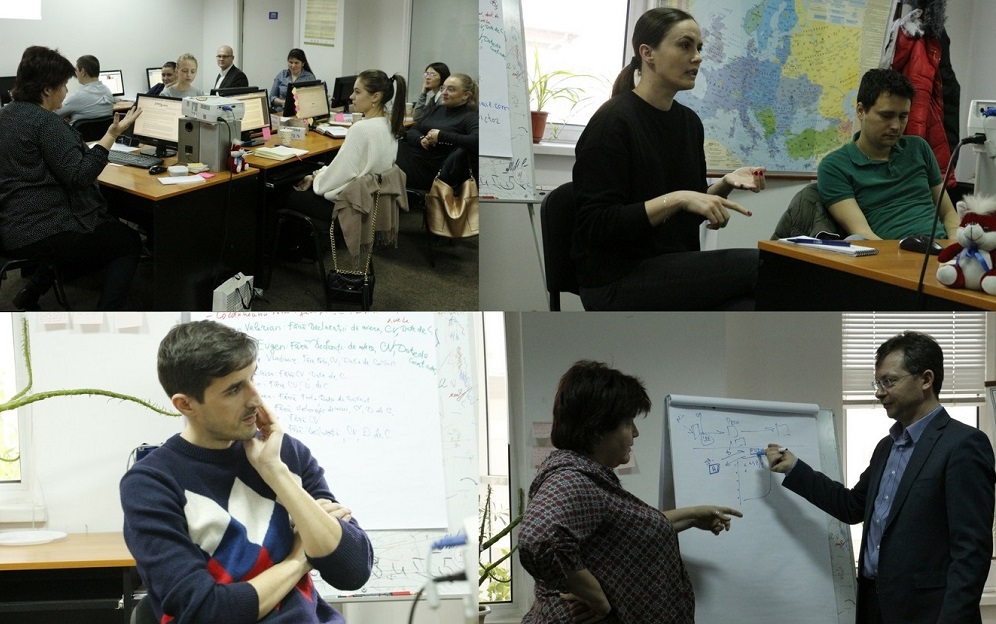Investigative Journalism: Revealing the Things that Some Want to Hide

What is a hypothesis? What is a confrontation interview? How do we choose documentation strategies? How do we check the evidence? Where can we find interesting topics of public interest? What qualities should an investigative reporter have? These issues were discussed, analyzed, and researched in one of the most complex courses at the SAJ – Investigative Journalism.
“A journalistic investigation always starts from an idea and aims to elucidate facts or actions that some people want to hide from the public opinion.” This is how trainer Alina Radu, director of the newspaper Ziarul de Garda, started the first day of the course. The journalist presented to students an online manual with all the information that is necessary to a beginner investigative journalist. Students found out what a journalistic investigation is and learned about its peculiarities. Special attention was paid to journalists’ rights. Students learned about the risks and advantages of a journalist working under cover.
Theory was followed by practice, when young people had to make a journalistic investigation. Guided by Victor Mosneag, reporter for Ziarul de Garda, they learned to establish the hypothesis of an investigation, tried on-site observation and pre-documentation, worked with national and international databases, and did confrontation interviews. The trainer also spoke with students about sources and how to work with them.
The journalists-to-be found out in what cases reporters have the right not to disclose the name of their source, how they should react to gossip, and how not to be manipulated by those who provide them with information. “Always act based on data and exact figures, and don’t forget that public interest should prevail in any journalistic investigation,” concluded Victor Mosneag at the end of the course.
Where and how can topics for investigation be found? Many of the students thought about it. To help them better find their way in the abundance of news and events, trainers invited two investigative reporters to the course. Liuba Sevciuc, journalist for RISE Moldova, and Anatolie Esanu, reporter for Ziarul de Garda and a graduate of the SAJ, spoke with students about the specifics of an investigative journalist’s work, analyzed the steps that should be followed in an investigation, and commented on the most high-profile journalistic investigations.
Students confessed at the end of the course that at this point investigative journalism seems one of the most complex aspects of the profession, as it involves much more responsibility and correctness, curiosity and courage. “The courage of telling it like it is,” student Diana Petrusan believes. “During this course, I felt as if I were in an action film, which constantly keeps you on edge. You seek information, and every detail you find makes you happy like a child. Then the most interesting part comes – everyone needs to know the things you discovered,” Diana said. “This course taught us to overcome the fear of speaking with officials about the illegalities they committed, addressing uncomfortable questions, and asking for explanations,” student Andrei Cebotari added.
Today, the School of Advanced Journalism begins the next specialized course – Environmental Journalism.
